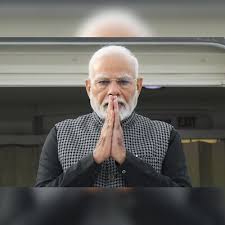Inter-State Council

- 14 Nov 2024
In News:
The Inter-State Council, which works for Centre-State and interstate coordination and cooperation, has been reconstituted with Prime Minister Narendra Modi as its chairman, all chief ministers and nine Union ministers as members and 13 Union ministers as permanent invitees.
About the Inter-State Council (ISC)
Formation of ISC
- Establishment: Created on May 28, 1990, through a Presidential Order following the recommendations of the Sarkaria Commission (1988).
- Headquarters: New Delhi.
- Meetings: The Council has convened 12 times since its formation.
Constitutional Provisions
- Not a Constitutional Body: It was established under Article 263 of the Constitution, making it a non-permanent advisory body.
- Role: Article 263 empowers the President to create the ISC for improving coordination between States and the Union.
Powers and Functions
- Investigate and Discuss: The ISC discusses subjects of common interest between the Centre and States.
- Recommendations: It recommends measures for better coordination and addressing inter-state issues.
- Deliberations: The ISC also deliberates on matters referred by the Chairman.
Composition of the ISC
- Chairperson: Prime Minister of India.
- Members:
- Chief Ministers of all States and Union Territories with legislative assemblies.
- Lieutenant Governors/Administrators of Union Territories without assemblies.
- 6 Union Cabinet Ministers nominated by the Prime Minister.
- Governors of States under President’s rule.
- Standing Committee:
- Chaired by the Union Home Minister.
- Includes 5 Union Cabinet Ministers and 9 Chief Ministers.
Functions and Role of the ISC
Role in Centre-State Cooperation
- Facilitates better coordination and cooperation between the Centre and States.
- Addressing disputes related to Centre-State and Inter-State relations.
Additional Functions
- Make Recommendations: Based on discussions, it recommends actions to align policies.
- Promote Social Legitimacy: Through consensus-driven decisions, ISC strengthens policy acceptance among states.
Key Bodies Related to Centre-State Relations
Zonal Councils
- Purpose: Promote interstate cooperation and coordination.
- Constitution: There are five Zonal Councils (Northern, Central, Eastern, Western, Southern) and a separate North Eastern Council established in 1972.
River Water Dispute Tribunals
- Function: Set up under the Inter-State River Water Disputes Act, 1956, these tribunals resolve disputes over river water sharing between States.
GST Council
- Constitution: Established under Article 279A, the GST Council is responsible for decisions related to GST implementation, ensuring cooperative federalism.
